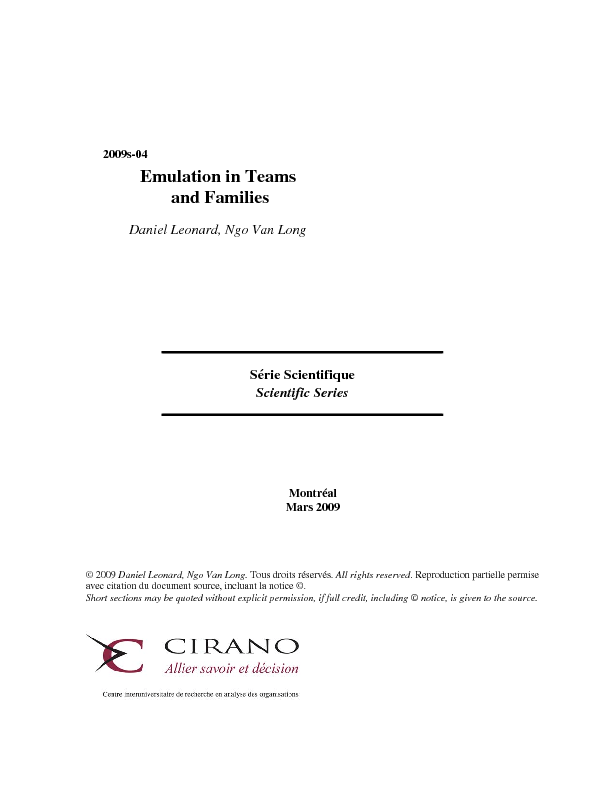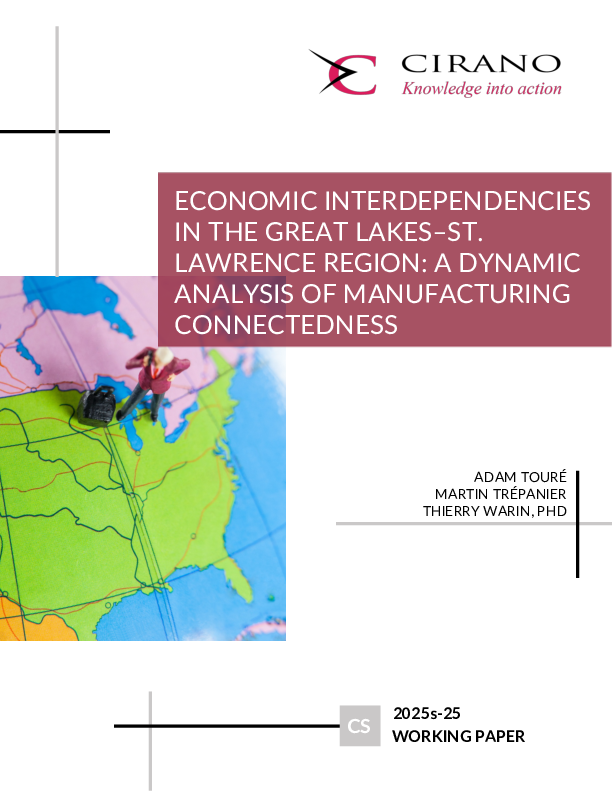Emulation in Teams and Families
We present a model where the probability distribution over the space of an agent's achievements depends not only on her ability and effort, but also on the goals set for her. The agent chooses her effort according to her utility net of perceived cost of effort. This cost is inversely proportional to an `emulation function' that depends on the training undertaken by rival agents. The principal also incurs costs in setting goals. In the first part of the paper we analyse the cases of coaches setting goals for rival athletes and that of a coach in charge of a team. We can sometimes rank the outcomes. In the second part of the paper we turn our attention to families where parents do not treat their children as perfect substitutes, as coaches did. We show that in many circumstances the emulation process reverses our naive intuition. There are now two distinct ways of prodding children to success: direct coaching, and emulation through sibling rivalry.
[ - ]




